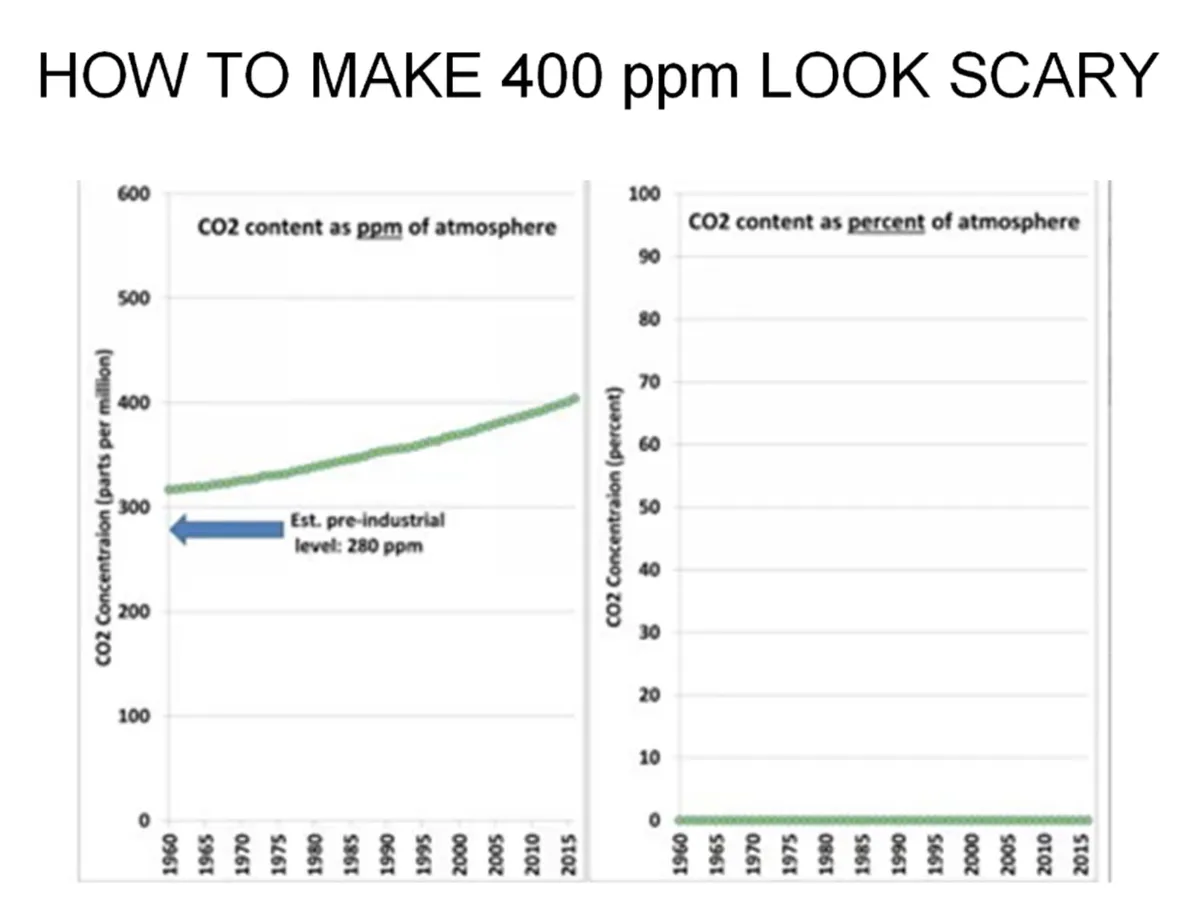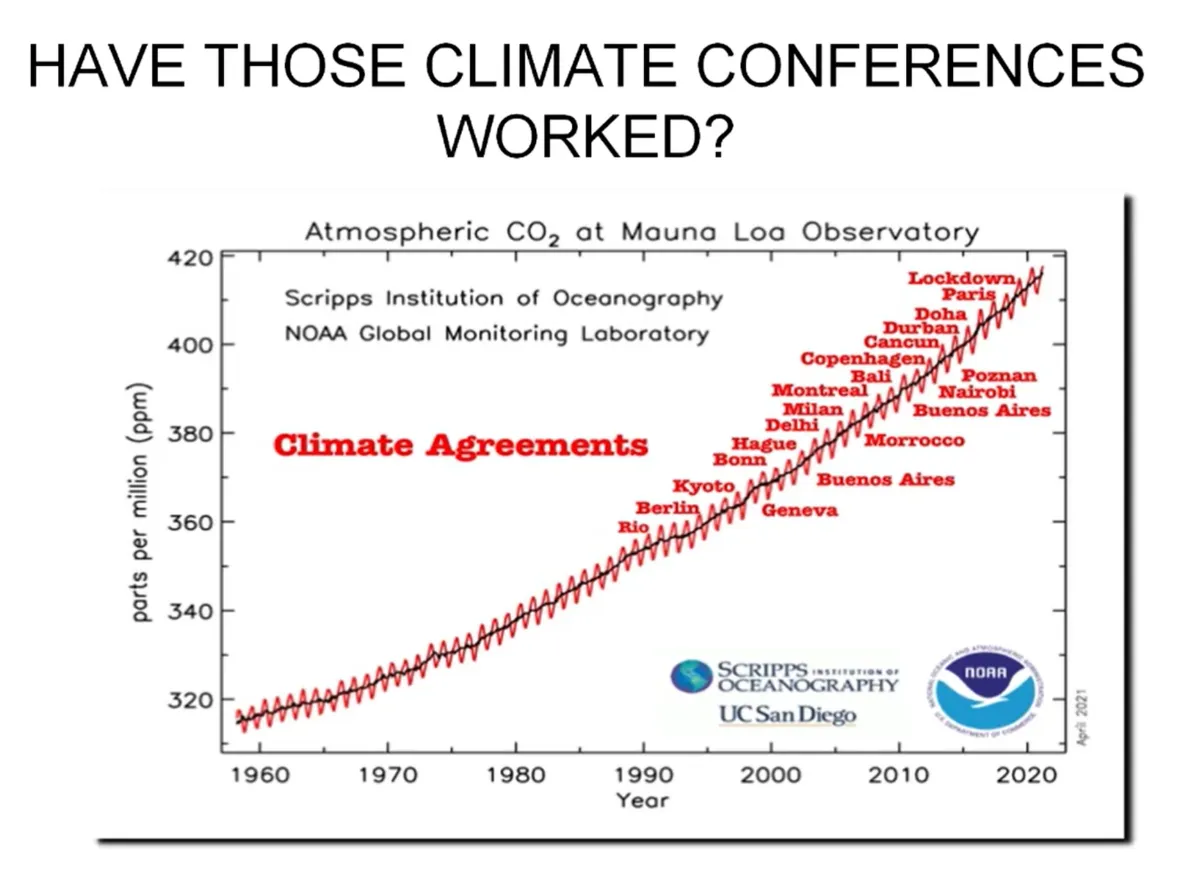Why aren't we skeptical about climate change?
Mark Honeychurch - 10th November 2025
Patrick Medlicott published a piece in our last newsletter about a talk on New Zealand’s response to climate change - about what we’re currently doing, and what we should be doing. One of our newsletter subscribers, Mike, reached out to me after he received the newsletter, expressing his confusion about the article:
Hello mark
I was interested in your stance regarding climate change. You also referred to global warming. Your comments didn’t sound very sceptical - rather, they were sceptical about those who are sceptical. This is quite different to say, the west Australia skeptics who are sceptical about many of the claims about climate change/global warming reports … many of whose protagonists get their income from being on the climate change band wagon. One thinks of course of the likes of Al Gore who made millions from it. Where is he these days?
Anyway, you have confused me. Are you sceptical about the global warmest/ climate changers or are you sceptical about the sceptics. Could you enlighten me?
Mike
Sent from my iPhone
As always I was happy to respond to one of our readers, in this instance to clarify what the NZ Skeptics think about climate change (along with my usual offer for the reader to write an article for me - an Editor’s got to hustle!):
Hi Mike,
Thanks for your email. I’ve looked for the “west Australia skeptics”, just to double check your claim about their stance on climate change. Sadly it seems that there’s no group around with that name. However I did find the Perth skeptics group, if that’s who you’re talking about. Their website talks about climate change, but they seem to believe that it’s both real and anthropogenic:
“This means that we do accept that humans landed on the moon, humans have caused global warming/climate change, the “9/11” terror attacks were caused by terrorists, that fluoride is beneficial in drinking water and that vaccines are beneficial and as safe as any other form of medical treatment” - https://perthskeptics.com.au/
I also found a mention of a “WA Skeptics” group, but apparently they don’t exist any more - there’s a mention of them on the Australian Skeptics website that says “Note: the former WA Skeptics group is no longer active”. - https://www.skeptics.com.au/contact/wa/
As for your confusion about the NZ Skeptics’ stance on climate change, a quick google search shows me that we have a short position statement online. It reads:
The New Zealand Skeptics Society supports the scientific consensus on Climate Change. There is an abundance of evidence demonstrating global mean temperatures are rising, and that humans have had a considerable impact on the natural rate of change.
The Society will adjust its position with the scientific consensus.
As well as this, there’s a nice resource on our website that goes into more details about why we hold this view:
Please let me know if you have any more problems understanding the articles in our newsletter, or the underlying principles behind what we choose to publish. And, of course, if you disagree with any of the articles in our newsletter, we would be happy to publish an article from you explaining why we’re wrong, and what conclusions the evidence actually supports.
Regards,
Mark Honeychurch
Secretary, NZ Skeptics
I received a brief response from Mike, saying he was going to investigate what happened with the WA Skeptics (but, sadly, no offer of an article):
Thanks mark
I will check with my mate Dr John Happs who was president of wa sceptics to hear what happened.
Mike
Sent from my iPhone
With this, I thought that might be the end of the matter. So I was a little surprised a couple of days later to receive a long email from Dr John Happs, titled “My response”, that attacked our stance on climate change. Given that our stance is pretty uncontroversial in skeptical circles - we stand by the science, and will continue to do so - it seemed a little surprising to see someone so well-connected to skepticism being this hostile to well-accepted science.
I messaged someone in the Australian Skeptics to ask about Dr Happs, and was told that he’s a “global warming denier”, and was given a video from last year to watch, of him giving a talk to a U3A (University of the Third Age) group in Canning River, Perth, Australia:
It only took about 2 or 3 minutes of watching this video to realise that Dr Happs is comfortable arguing disingenuously, as he used metaphorical quotes about the amount of time we have to fix climate change to accuse people of being alarmist about climate change. In a slide titled “Silly predictions from climate alarmists”, John used the following quotes (I’ve reordered them in order of immediacy):
- “Climate change is REAL and causes extreme weather conditions”
- “We have 10 years to save the planet from turning into a total frying pan”
- “We have 50 days to save the world from global warming”
- “We have hours to act to avert a slow-motion tsunami that could destroy civilisation as we know it”
The first quote seems quite uncontroversial, and came from Barbra Streisand. The second one is supposedly from Al Gore, but a quick google search shows that it wasn’t Al Gore that said this - it was comedian Larry David, who was joking about Al Gore. The third is attributed to Gordon Brown, ex Prime Minister of the UK. He does appear to have said this, but in the context of 50 days of international negotiations on climate agreements. The last one was written by Elizabeth May, ex-leader of the Green Party in Canada - and is obviously metaphorical, even without reading it in context:
Recently, Prince Charles has said we have only an estimated 100 months. Unless the world comes together and negotiates a meaningful agreement to rapidly reduce greenhouse gas emissions nine months from now – at the Copenhagen meeting of the United Nations climate conference in December – another 90 months won’t help. We have hours to act to avert a slow-motion tsunami that could destroy civilization as we know it.
It’s also obvious that none of these people are climate scientists - these are three politicians and one singer/actress. Taking the metaphorical words of politicians, and treating them like they’re real-world predictions about climate change, seems pretty under-handed to me.
The video doesn’t get much better from there - with a claim about termites producing more CO2 than all human activity does, and 10 times more than human breathing does. This is what was written on one of John’s slides:
Human activity places about 30 billion tons of CO2 into the atmosphere each year. (Termites produce 50 billion tons per annum. Zimmerman et al. 1982; Humans breathe out 2.25 billion tons per year)
This claim can be seen elsewhere, such as in this image which was shared widely online a few years ago:

The claim doesn’t stand up to scrutiny, however, as can be seen in an AFP Fact Check that makes the counter-claim that termites produce a tenth of the CO2 that humans do:
_The claim is false; scientists estimate termites produce approximately one-tenth of the carbon emissions produced by humans in a single year.
Professor Stefan Arndt, from the University of Melbourne’s School of Ecosystem and Forest Sciences, told AFP the misleading claim was in fact “the other way around”.
“Termites only emit a tenth of the overall emissions humans create every year, in terms of anthropogenic fossil fuel emissions,” Arndt said via email on October 29, 2019.
This academic study, written by academics in Japan, Malaysia and the UK in 2000, estimated termites emit 3,540 teragrams, or 3.54 Gigatonnes of CO2 in a year._
Additionally, according to the fact check, the CO2 from termites is part of the natural carbon cycle, and this differs from CO2 from human activity such as burning fossil fuels, which isn’t part of the carbon cycle.
John’s next major point is that, although CO2 in the earth’s atmosphere is rising steeply as a percentage (from 320 ppm (parts per million) to 400 ppm), if you consider these amounts in relation to all the constituents of air, the difference between 0.032% and 0.04% isn’t much at all - both are a tiny percentage of the total:

Of course, in reality not all air molecules behave the same - the 75% of nitrogen molecules in the air, for example, are almost totally inert, and not a greenhouse gas. Similarly oxygen, at 21%, isn’t a greenhouse gas, and neither is the third most abundant molecule, Argon (at 0.9%) - which is a noble gas, with a full outer shell of electrons, and therefore doesn’t even bond with itself to create molecules. And that brings us to the fourth most abundant molecule, CO2, which IS a greenhouse gas - and so, although it’s only a small part of our atmosphere, it’s the most abundant molecule in the air that is able to trap energy from the sun. Therefore even if its absolute percentage of air is low, it still makes an appreciable difference if the amount in the atmosphere rises or falls.
Next John maps climate agreements against measurements of CO2 in the atmosphere, showing that none of the agreements have stopped the rise of CO2 levels:

This argument feels really disingenuous, as surely John understands that any climate agreement is only going to have an effect measured in decades, not weeks. On top of this, world leaders are doing a really bad job of a) agreeing to changes in these agreements that will make a meaningful difference, and b) sticking to the promises they do make. Obviously governments have to balance their climate response against the economics of making changes, so it’s not surprising that countries aren’t all-in when it comes to climate change. But to expect the result of these agreements to show up on a graph like this is just silly.
John then shows a list of neutral and beneficial effects of CO2, like being odourless and non-toxic (although I’m not sure that’s true - high levels of CO2 are toxic to humans), and helping plants to grow. Again, surely John knows that something can have both positive and negative effects, as is the case with carbon dioxide.
Next up John argues that there’s no consensus on climate change. He lists several different petitions that have been signed by hundreds, or even thousands, of scientists, all speaking out against the idea of climate change. These petitions are:
- The Heidelberg Appeal
- Oregon Petition
- Manhattan Declaration
- United Nations Petition
- Petition to Canadian Prime Minister
- The Leipzig Declaration
- Statement from Atmospheric Scientists
- Petition by German Scientists
- American Physical Society
- Two petitions from NASA scientists & engineers
I’ve linked to information on these petitions where I could find it, but sadly for several of them the only hits that seem to come up in Google are places where John Happs has been commenting on climate change posts - making me think that maybe he’s mangled their names a little. Unsurprisingly the petitions that I could find information about are all mired in controversy, including details about who sponsored them, who signed them, what the wording of the petition was, etc.
The second half of the talk kicks into a different gear, becoming a little conspiratorial when John wonders, if climate change alarmism is a scam, who’s behind the curtain. Apparently the UN is to blame, and their drive to become the New World Order’s one-world government. The climate hoax is supposedly part of a complex plan the UN has to destroy capitalism. All of this is backed up by a few quotes, which I’m going to assume have been just as misused as the ones he tortured from Gordon Brown, Barbra Streisand, etc.
Later on in the talk Al Gore comes in for criticism, as do others such as kiwi climate expert Michael Mann. On the flip side, Australia’s Ian Plimer and New Zealand’s Vincent Gray are considered by John to be defenders of the truth. Back in 2013 in issue 107 of our journal, we published a letter from Vincent that voiced his distaste for our organisation:
I have been a member of the Skeptics for over 30 years and I regard them as the SAFE Sceptics. You are people who are only sceptical about things that most people already agree to.
I had the distinction in 1992 for you to publish my article The Skeptical Environmentalist on your front page. That was in the days when the late Owen McShane was Editor, and he went on to declare his status as an ‘unsafe sceptic’ when he helped to found the NZ Climate Science Coalition.
Back to the video, there are many more parts of it that have surprising enough claims that I suspect they’re probably not true. But, as Katrina said in her article, the Gish Gallop is a good way to beat someone in an argument, because it takes a lot more effort to properly refute claims than to simply assert them. And I really don’t feel like I want to spend hours checking each of John’s many claims in the video to see which ones are untrue, and possibly disingenuous, when I could be something much more productive and beneficial for skepticism.
It’s disappointing to see someone who considers themselves a skeptic use such underhanded tactics to argue for a point of view that goes against the scientific consensus. When us skeptics buck the trend and speak out, saying that the experts are wrong, we need to be confident that we know what we’re talking about. We can’t just half-ass it and use trickery and subterfuge to argue our case, we need to make sure that our arguments are as bulletproof as possible. In John’s case, it seems like his bad logic is less a case of honest mistakes, and more likely a case of having motives that are not aligned well with wanting to know the truth - John seems to have a conclusion in his head already, and he’s happy to use whatever tactics he can think of to get people to agree with him.
Although I haven’t even touched on John’s email to me, much of the content in the email also appears in the video. Therefore I’ve already covered some of his email claims, although far from all of them. I asked John if it was okay to publish his email in our newsletter, to which he responded very briefly with “Feel free to post our (full) correspondence in your next newsletter”.
Given that there had been no correspondence between us before John sent his long email to me, I’ve simply published John’s email below (I guess if you consider Mike’s emails to me, which prompted John to contact me, as “correspondence”, then you just need to scroll up in this article to see those as well). The only editing I’ve done to John’s email is to remove the first sentence and move part of it to the second sentence, as a way to help it read more as an article than an email.
